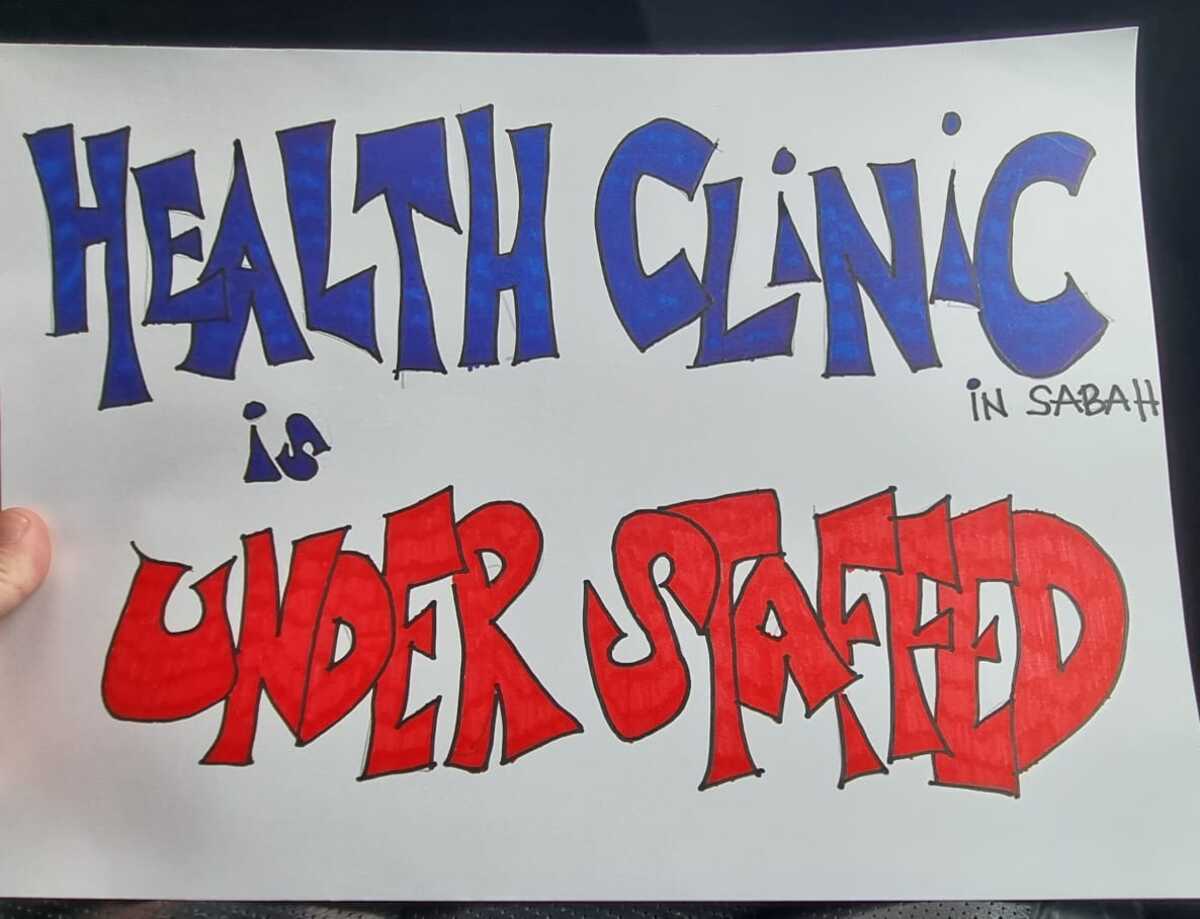KUALA LUMPUR, Feb 1 – A senior medical officer (MO), who is working at a public primary health clinic in Sabah, laments staff shortages that affect patient care.
The government doctor attributed the root of this affliction to the transfer of doctors from West Malaysia to East Malaysia, who then return to the peninsula after their mandatory two years of service is up.
The MO, who has served in Sabah for over 10 years, stated that the Ministry of Health (MOH) needs to send housemen who are from East Malaysia back to Sabah and Sarawak for service, as opposed to making them serve in West Malaysia.
Apart from a lack of doctors, the MO also raised issues of abuse of power, lack of equipment, outdated referral systems, unpaid claims, and overwork amid understaffing.
The MO from a klinik kesihatan was among government health care workers nationwide, predominantly from MOH, who took a CodeBlue survey earlier this month on workplace frustrations.
Out of the 1,652 respondents nationwide who took CodeBlue’s poll, about 9.3 per cent (153 people) are working in Sabah. In line with findings from the overall sample, an overwhelming majority of Sabah-based respondents (93.5 per cent) agree that the public health care system is currently in crisis.
Among the 153 Sabah-based respondents, 70 per cent held that they are thinking of quitting the public health care system. Like with the overall sample nationwide, the majority of health care workers working in Sabah feel underpaid (82 per cent), burned out (72 per cent), overworked (68 per cent), and insecure about their career progression (59 per cent). About 18 per cent reported facing workplace bullying, while 5 per cent claimed sexual harassment.
Below is the Sabah-based senior MO’s story in his own words. As civil servants are prohibited from speaking publicly, CodeBlue is providing him anonymity. The transcript of his interview with CodeBlue has been lightly edited for clarity.
Spending More Time With Patients Now, But Still Overworked and Understaffed
Many complain about overworking. I’m working in a klinik kesihatan (public health clinic) so it’s quite different from the hospital setting. I was in a hospital for the first two years of my service during my housemanship. Since 2013 until now, almost 10 years I spent my time in the clinic.
In terms of overworking, I think everywhere got the same issues.
In the clinic, since the last 10 years, the number of doctors has never been enough. At once, so many of them moved out from our clinic because many [are] from peninsular Malaysia, so they come here only for a short term, and then they went back to the peninsula.
So in Sabah, we are left with not many doctors. In my clinic, especially, we can see the number of doctors has never been enough.
Last time, during the first year I worked in this klinik kesihatan, I used to see almost 100 patients per day because in my clinic then, there were only three to four doctors. That was 10 years ago.
Today, we can see many doctors come in, but they will not last. At this moment, in my clinic, I think maybe we have around 10, maybe less.
Even though we have these 10 doctors, we still cannot cope.
The number of patients has slightly reduced as compared to last time, 10 years ago, but we are obliged to see patients thoroughly, more thoroughly than last time.
Last time when we saw patients, it was like touch and go. This time, we have to see properly; that makes us have less time to cope with the number of patients.
Ten years ago, for one patient, maybe we could spend about two minutes or less than five minutes. That’s all we can have. That is the only time that we can spend on them, if we spend more than that, we cannot finish our patients until office hour finish.
Today, roughly 10 minutes is good enough. That is for patients with no critical issues, with not many issues. But patients with critical issues that need referral to tertiary hospital – when we start, then we have no cover; there’s no colleagues to cover our duties.
That’s when the problem comes. When we have patients who have to be referred, we don’t have enough colleagues to cover our patients.
Outdated Referral System Further Wastes Doctors’ Time
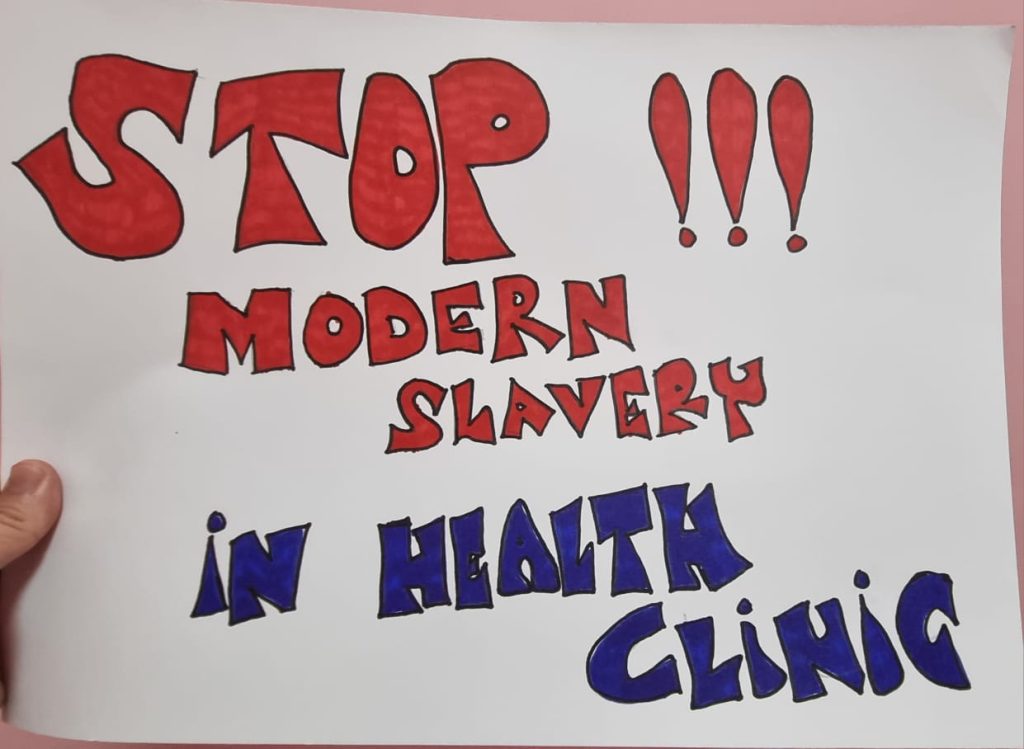
The referral process, normally we have to call a hospital. For me, my place, for more than 10 years, the referral system from clinic to hospital is a burden for clinic medical officers because we have to call the emergency department physician, as well as the medical officer.
And then we have to call the primary team and say that we have patients to be admitted to the medical ward. So we have to call the medical specialist as well as the medical officer.
We have so many people to call – at least four people we have to call before we can send patients to hospitals. That’s terrible and a waste of our time. We have to spend almost one hour or more than one hour just to manage one patient to be referred to the hospital. This is happening in my clinic.
I’m not so sure what is happening to clinics in KL or Selangor or even in other districts in Sabah, but this is the real problem that we have to face every day. This is terrible, really terrible.
For your information, my clinic and the tertiary hospital – their distance is only one minute away. We can see the hospital. The hospital is located opposite of our clinic, and we still have to go through this kind of referral system. It’s walking distance – less than three minutes.
We send the patient by ambulance for a distance less than, I don’t know, a hundred metres or two hundred or less than that. But sometimes our ambulance is not available, so we still have to fetch an ambulance from the hospital. It depends on the availability.
I don’t mind the ambulance, but the referral system of having us to call everyone in the hospital to get this patient sent over to the hospital, that is a terrible system.
This is happening in my clinic, in this state. This is one of the problems that we face here.
I don’t know what is the problem with the head of department in the hospital with the pengarah hospital (hospital director) and then how they discuss this kind of referral system, but this is a problem for everyone in the clinics because everytime they got something to refer, they have to call up for SOS for everyone to see those patients left in the treatment room.
So this one particular doctor will focus on referring those patients that they need to refer.
Doctors Purchase Own Equipment
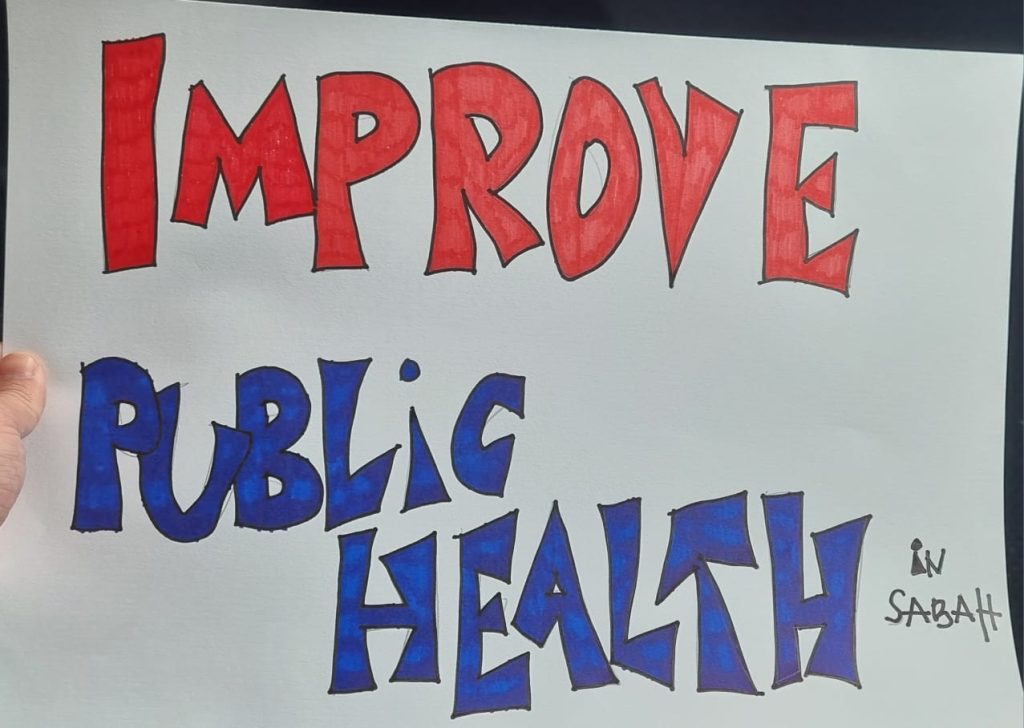
It’s not okay. It is not. Even simple equipment like an otoscope, to view our ear canal, even that thing is not available in many of the clinics.
Like in my previous clinic, it was not available and in my current clinic also, I think not every room has the equipment. Even I have to buy my own so that it’s easier for me to use it.
No, no, no, no, no, they won’t pay us for that. That is our own initiative.
For that particular otoscope I bought, I think at the store it was RM600, five years ago. But now, you can buy from Shopee. Actually, from China there, you can get less than RM100.
Senior medical officer, klinik kesihatan, Sabah
But that is the reality in government clinics and hospitals. For some equipment, we buy ourselves. This small thing can, but big ones that definitely cannot.
I’m not sure how many doctors buy their own equipment, but I’m one of those who buys their own equipment. A few medical assistants in smaller clinics also bought small equipment themselves.
I know this problem has been there for so many years — since I was there 10 years ago. This problem was never resolved, so I have to buy it myself so that it is easy for me to work.
Price Of KFC Snack Plate Doubles, But Doctor Wages Remain Stagnant
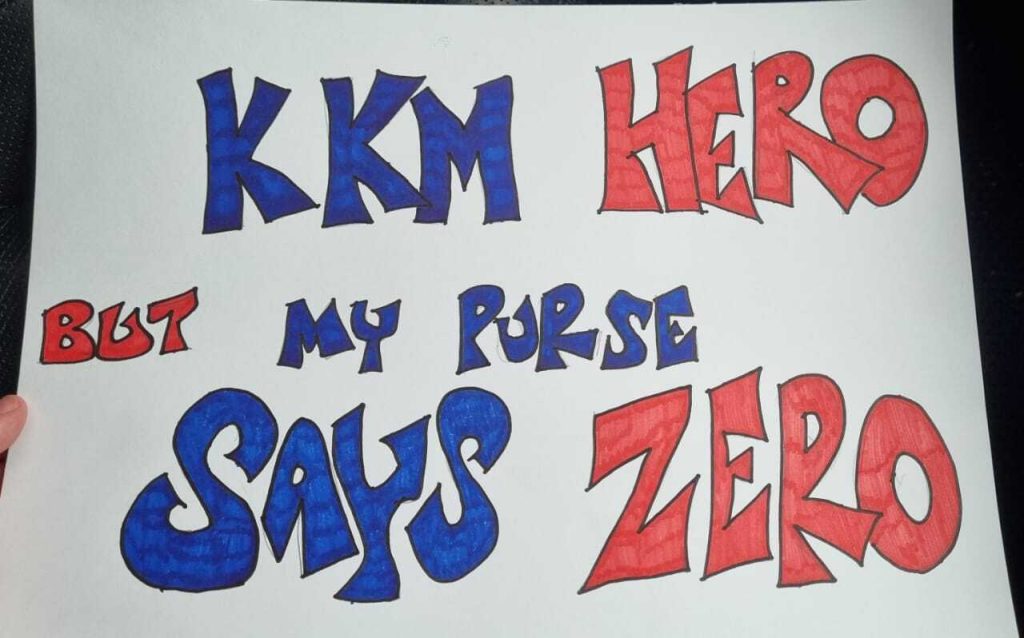
If compared to private settings, of course, I am dissatisfied with the pay. But the pay, if compared to the workload and other things, I don’t think it’s enough.
I have worked for almost 15 years. My pay at this moment is around just above RM10,000. So 10k in 15 years. Of course, I see it’s not enough. But if you compare to my juniors that are lower in rank, then you can see that the amount is much lesser.
Of course, it’s not enough. Some more our economy, the cost of living has risen almost double.
By right, our pay should be raised at least half the amount we have right now. If mine like 10, double to 15 at least. For my juniors who have less than five or six, they should get at least 10.
Basically, it’s based on my own experience, junior doctors, youngest just finish horsemanship, I think just slightly less than 5k. Our basic is just about RM 2,000 plus, a bit more than RM2,000, plus the allowance, the critical allowance as well as the house allowance. So around 5k that those juniors from hospital – who just finished housemanship and then move to clinic – that is the amount that they would get.
And then those who are maybe five years in service, I think it’s slightly above RM6,000. And then those that are below 10 years, I think up to RM7,000 to RM8,000 that’s all. Very low if you compare it to private settings.
Of course, we cannot get the private pay, but at least, the reasonable pay should be given because from what I know, the salary system was last reviewed more than 10 years ago before I started work, maybe 15 or 20 years ago.
That was the last time they reviewed the salary system.
So for me, 20 years ago, even 10 years ago, benda tu macam dah lampuk lah (it’s gone stale). They should review to improve, in my own opinion, because that’s too long already.
Thirty years ago, the cost of KFC was, I think, a Snack Plate was less than RM10, but now Snack Plate is almost RM18. You cannot compare 30 years ago pay and the current pay; you cannot compare that. You should improve a lot.
Senior medical officer, klinik kesihatan, Sabah
Those who are Sabah natives don’t get the special allowance that doctors from peninsula get. Their salary, their total pay is slightly less than those from the peninsula.
Doctors from the peninsula have critical allowance; all of the doctors and even staff nurse and MA (medical assistant) got critical allowance. They also get allowance for perumahan wilayah, allowance wilayah, and allowance keraian. So, they get four allowances in total.
Those who are Sabah natives, they just receive the critical allowance and allowance keraian. And I don’t think they receive the allowance perumahan or allowance wilayah, but I’m not sure whether they have another allowance to replace the allowance wilayah.
They have to deliver — especially the pay and then the burden. I think these are the two hardcore problems that I and my colleagues have faced for so many years already.
You Pay More For Specialists Who Do Less, But Less For Medical Officers Who Do More
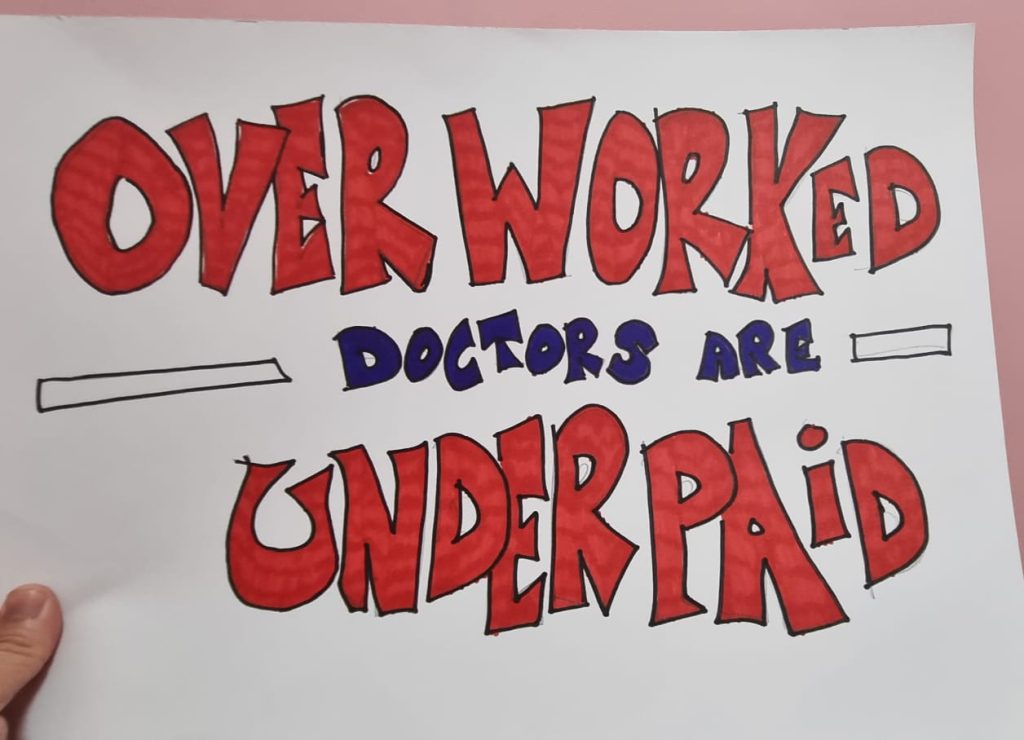
The government should realise that not many doctors will stay in government for more than 10 years.
Maybe me and some of my colleagues are one of so many left that stay more than 10 years. But the majority of my colleagues have left the government sector, and they look for another option that can give better living. So maybe, those doctors that stay in government – they don’t have other options, that’s all.
But if they have a better option, for sure, they will leave the government. If all those seniors leave the government sector, then the circle will continue again and again for the rest of our life.
Then only the juniors are left in the government sector; you will not get the best in the government sector. My colleagues, everyone talks about work burdens and payment that is not worth the work.
Senior medical officer, klinik kesihatan, Sabah
It’s not easy to see those that will stay longer. Only those with specific titles will stay.
Those ordinary medical officers – not so much maybe because the payment isn’t worth it. And then there’s bullying too.
Specialist will bully the junior. The medical officer without any title will be bullied to do a lot of work that should be done by the specialist. It’s the medical officer that does the work.
My own experience when I was just an ordinary medical officer, I had to do a lot of work. So I don’t think it’s fair because I do work that is supposedly done by a specialist, but I was paid ordinary medical officer payment. In my current clinic, though, the specialists don’t really bully the MO.
What’s the point of having a specialist in every department? Specialist work is done by medical officers, but they (specialists) get special allowance for (supposedly) doing those jobs. I think this is also a kesalahan (wrong) that is happening in government sectors.
Specialists see less patients. Medical officers will see a lot more patients, but the payment doesn’t reflect the workload. This sometimes is a key dissatisfaction among medical officers. I think this is happening everywhere.
Senior medical officer, Sabah
So that’s why, if you talk to any government doctor, they complain about the pay because of course, the pay is not worth the workload. You pay more for the specialist, but the specialist does less jobs. And then, the medical officer is paid less, but has to work more. I think this nature, this budaya (culture) has been there from when I was in hospital. So when I’m at the clinic also, I can see the trend will continue.
You cannot control the number of patients, but you can control the number of doctors. You have to increase the number of doctors. You have to promote those doctors, like right now, promote contract to permanent.
Then keep those doctors in every clinic with fair numbers, like you cannot put a lot of doctors in peninsula, but you keep less doctors in Sabah. It’s not fair either.
So you have to be fair, in terms of distribution, too, because if you want to lower down the burden, it’s very subjective. We cannot lower the number of patients, but we can control the number of doctors so that the burden will be distributed fairly.
That is the thing that the government and MOH can do.
Management Memang Very Sucks. Very.

I think the district health office management memang very sucks. Very. It looks like they are not professional in dealing with management. I don’t know. Maybe doctors are not given the talent to manage.
My own clinic, they have no tendency to request more doctors, but they have the tendency to say that they have enough doctors. I don’t know why, because by right, every year, they should increase the number of doctors that need to be sent to our settings, to our clinics.
But every year, I can see that fewer doctors come in, but more doctors move out to the peninsula. The doctor balance is become lesser. I can feel there is no urge to request more doctors.
In government, you can request for the posts. The post can be created so that the number will be sent. After the post is created, later on the body can be sent. But this trend seems like they don’t want to create the post.
This is the problem with the admin now. Either they don’t see or they don’t care, I don’t know. I don’t know what is the problem with MOH human resource administration.
By right, they should send Sabah and Sarawak natives, come back to their own land and serve their people because we cannot depend on those from the peninsula. Those from the peninsula maybe last for one or two years, and then they’re gone.
Senior medical officer, klinik kesihatan, Sabah
At this moment in my clinic, I think only a few doctors are from the peninsula. More than 10 years, I think there’s only two of us serving, and then the rest are slightly more than five years. Majority that come here will go back to peninsula after one or two years.
They can tahan one to two years only and then they go back.
We have family, too, so those people who have family go back to peninsula.
Once they finish their medical school, those from Sabah and Sarawak should just simply send directly to Sabah and Sarawak. Unless once they become specialists, it’s their right to choose whichever clinic they want. I think those juniors should send here because I’m so sure that the number of doctors in peninsular clinics is much more than what we have here.
That’s what my colleagues in peninsula told me because they are in heaven over there. But it is not hell here in Sabah. It’s not hell in Sabah, but I can see no difference. I have more than 10 years’ experience, but I cannot see the difference and the changes will not happen soon in Sabah clinics.
Two Things: Resolve Pay And Doctors’ Burden
I have been planning to quit for so many years already, but because I cannot see my future in another field, I haven’t quit.
Maybe because I don’t get it yet, but I’m still looking for other options. If I think the option is much better than what I have in here, for sure I will quit.
If they can increase my pay significantly, but if just so-so, I don’t really mind. That can give me a better life. Why not?
Secondly, if they can provide a fair number of doctors in my clinic practice so that the burden will not be like hell.
I think these two issues – even a few years ago I spoke about. I don’t really mind about other options that they want to give, but if these two they can solve: Firstly, the pay, and secondly, the burden, I think I can stay for longer than my current service.


